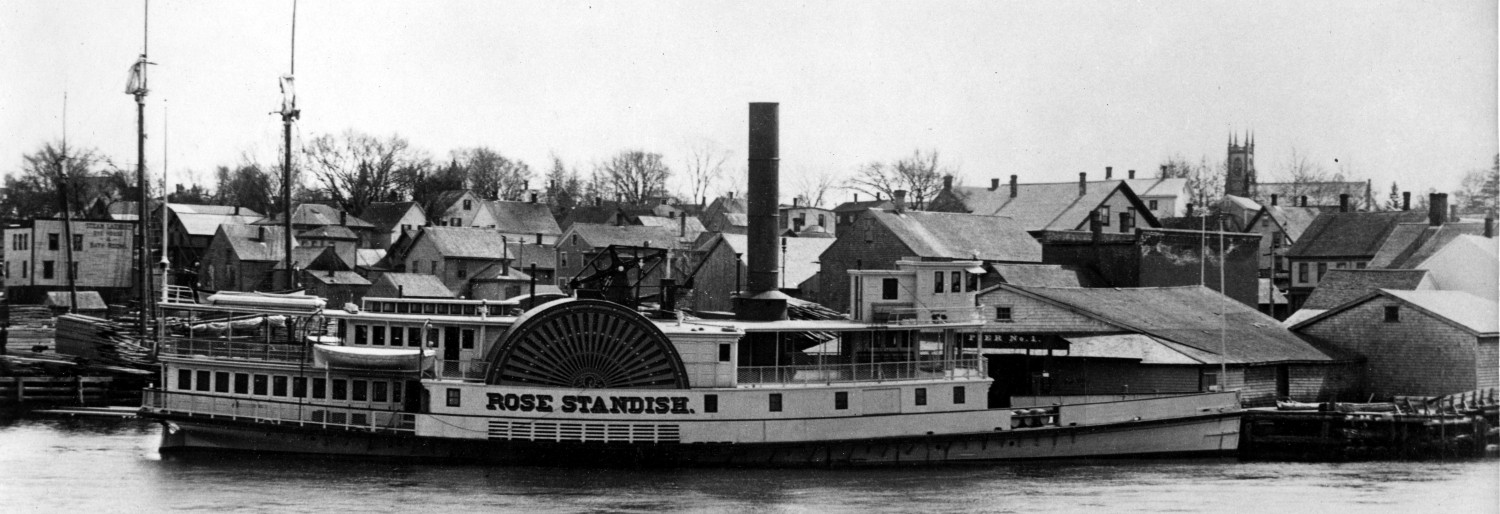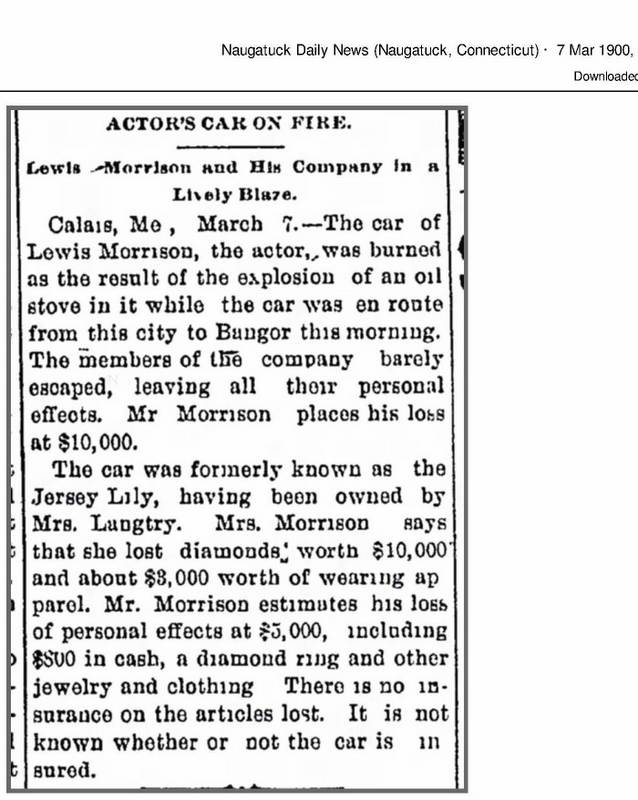
ACTOR’S CAR ON FIRE.
LEWIS Morrison and His Company in Lively Blaze
Calais Maine March 7 1900
The car of Lewis Morrison, the actor, was burned as a result of the explosion of an oil stove in it while the car was en route from this city to Bangor this morning. Members of the company barely escaped, leaving all their personal effects. Mr. Morrison places his loss at $10000. The car was formerly known as the Jersey Lily, having been owned by Langtry. Mrs. Morrison says that she lost diamonds worth $10,000 and about $8,000 worth of wearing apparel. Mr. Morrison estimates his loss of personal effects at $5,000, including cash, a diamond ring and other jewelry and clothing. There is no insurance on the articles lost. It is not known whether or not the car is insured.
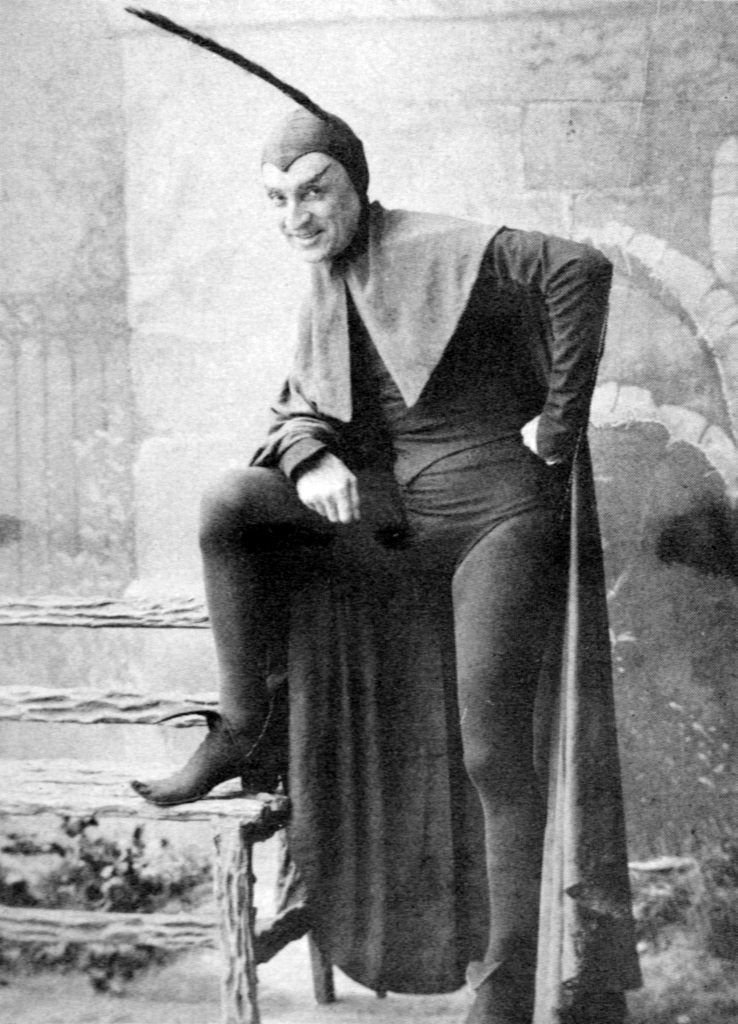
This rather perplexing article appeared in newspapers across the country in March 1900. We say perplexing because on first reading it appears the actor Lewis Morrison was driving from Calais to Bangor when the oil stove in his vehicle exploded with disastrous effect. The Portland-born Morrison was a well known stage and screen actor in the early 1900s, so his presence in Calais would not have been unusual, but it would have been impossible to have driven a car from Calais to Bangor in 1900. Further, the first automobile, an electric car at that, did not appear on the streets of Calais until 1903.
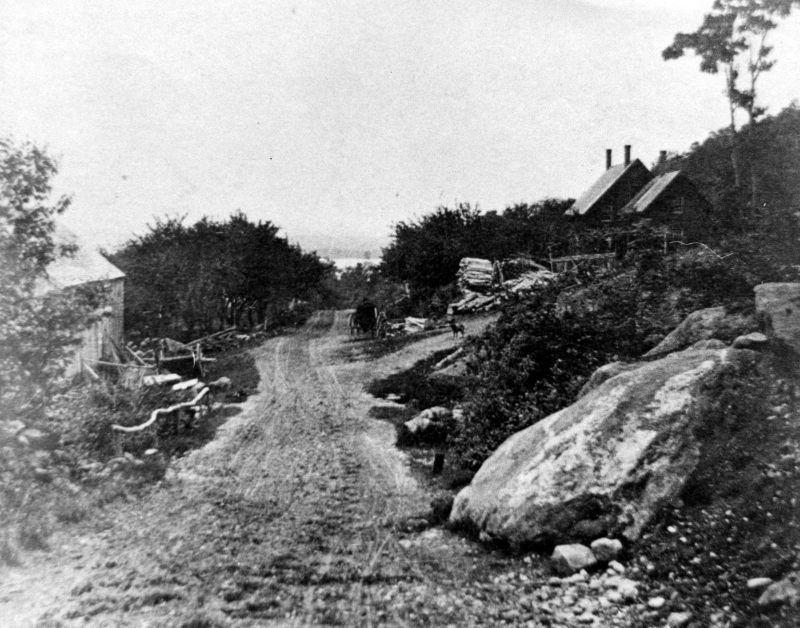
Above is a photo of a local road about 1900, and it is actually in pretty decent condition for those days. Imagine a trip of 100 miles over this road when the only gas available was the methane discharged by curious cows wondering what was making such an infernal racket. Another point of confusion was the cause of the accident, the exploding “oil stove” – the first cars didn’t have heaters, oil stoves or otherwise.
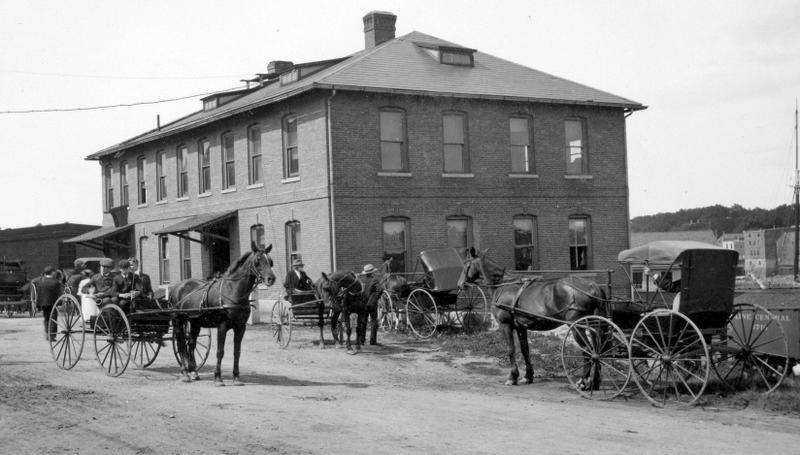
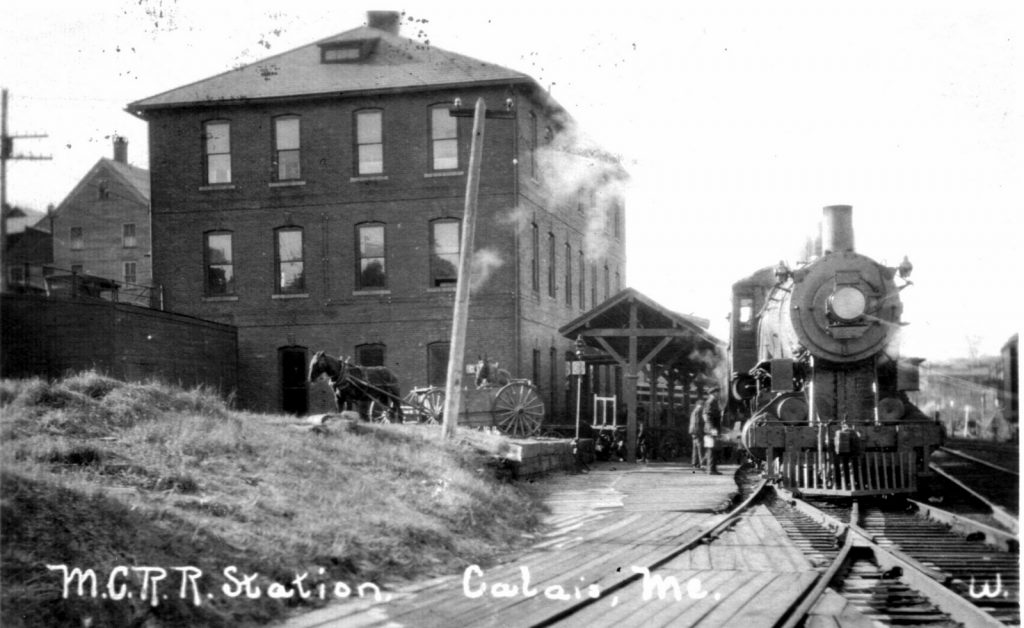
The answer to the puzzle is actually quite simple and some of you may have cottoned to it already. The “car” was a railroad car attached to the morning train to Bangor which left early that morning from the Calais railroad station on Hog Alley. The rich and famous owned private railroad cars and Morrison’s even had a name, the “Jersey Lily” because it had once belonged to Lily Langtry, the most famous actress and personality of the age.
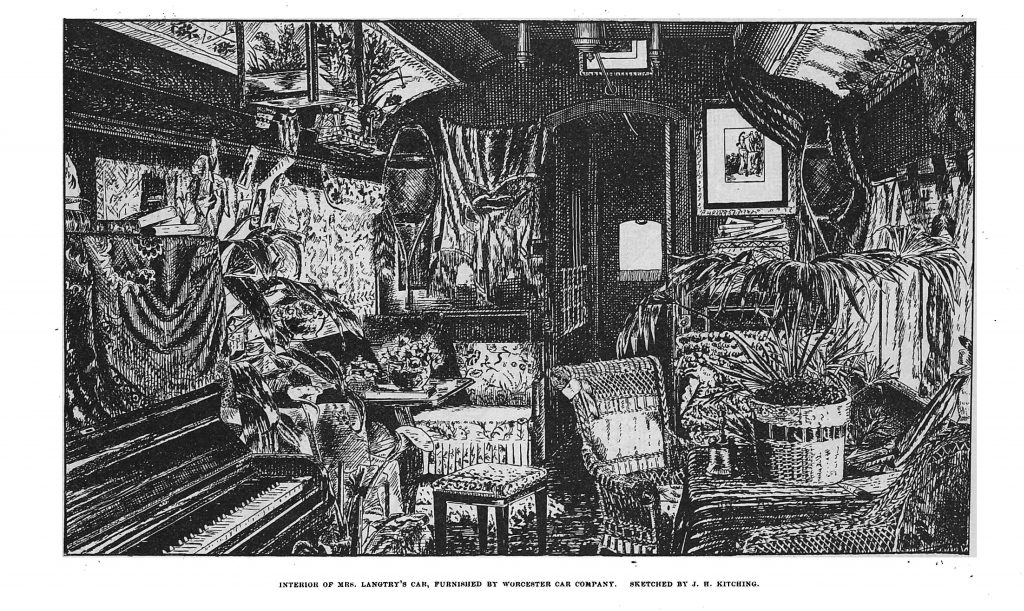
Thanks to the wonders of Google, we can even show you a drawing on the interior of Langtry’s private railroad car which we speculate is the one referred to in the article, although it is possible Langtry may have had more than one.
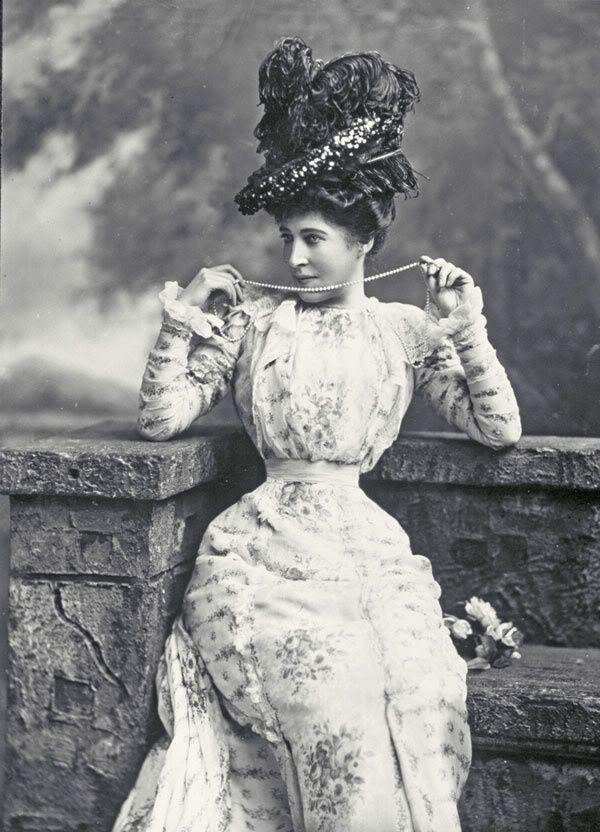
In 1900, Langtry was back in the United States after many years and numerous romantic entanglements on the continent, and it appears she may have had some connection with Maine.
January 6, 1900:
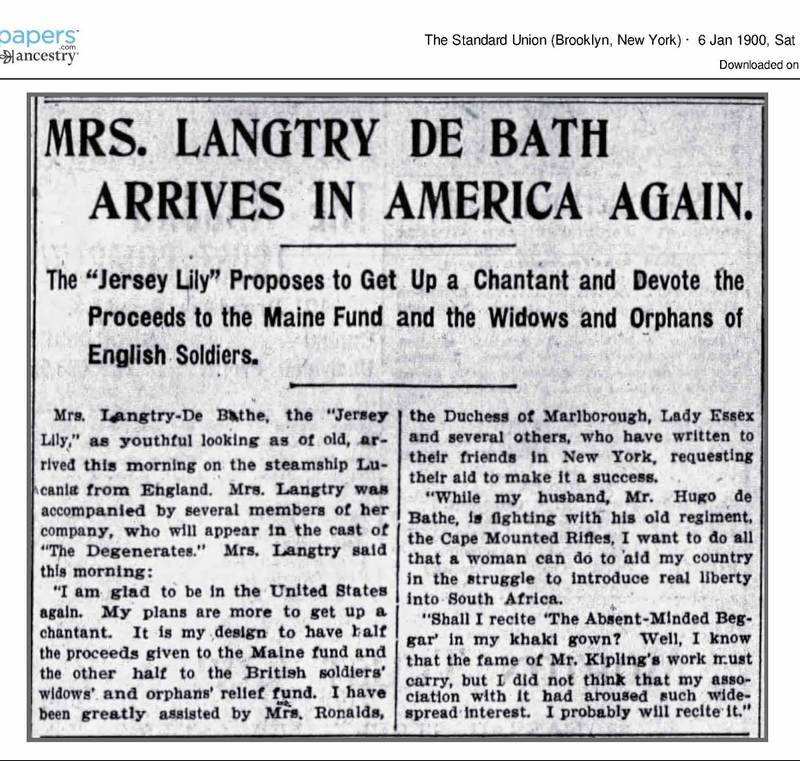
MRS. LANGTRY DE BATHE ARRIVES IN AMERICA AGAIN.
The Jersey Lily Proposes to Get Up a Chantant and Devote the Proceeds to the Maine Fund and the Widows and Orphans of English Soldiers.
Mrs. Langtry De Bathe the “Jersey Lily”, as youthful looking as of old, arrived this morning on the steamship Lucania from England. Mrs. Langtry was accompanied by several members of her company, who will appear in the cast of “The Degenerates.” Mrs. Langtry said this morning; “I am glad to be in the United States again. My plans are more to get up a chantant. It is my design to have half the proceeds given to the Maine fund and the other half to the British soldier’s widows and orphans relief fund. I have been greatly assisted by Mrs. Ronalds, the Duchess of Marlborough, Lady Essex and several others, who have written to their friends in New York, requesting their aid to make It a success. “While my husband, Mr. Hugo de Bathe is fighting with his old regiment, the Cape Mounted Rifles, I want to do all that a woman can do to aid my country In the struggle to Introduce real liberty into South Africa. “Shall I recite “The Absent-Minded Beggar in my khaki gown? Well, I know that the fame of Mr. Kipling’s work must carry, but I did not think that my association with it had aroused such widespread Interest. I probably will recite It.”
We aren’t sure what getting “up a chantant” means precisely but the word is defined as melodious or tuneful. Regardless one half of the proceeds of the “chantant” were to go to the “Maine Fund” although we have no idea what the Maine Fund” may have been or whether it had any connection with the State of Maine. As to why Lewis Morrison was in Calais, we can offer an educated guess.
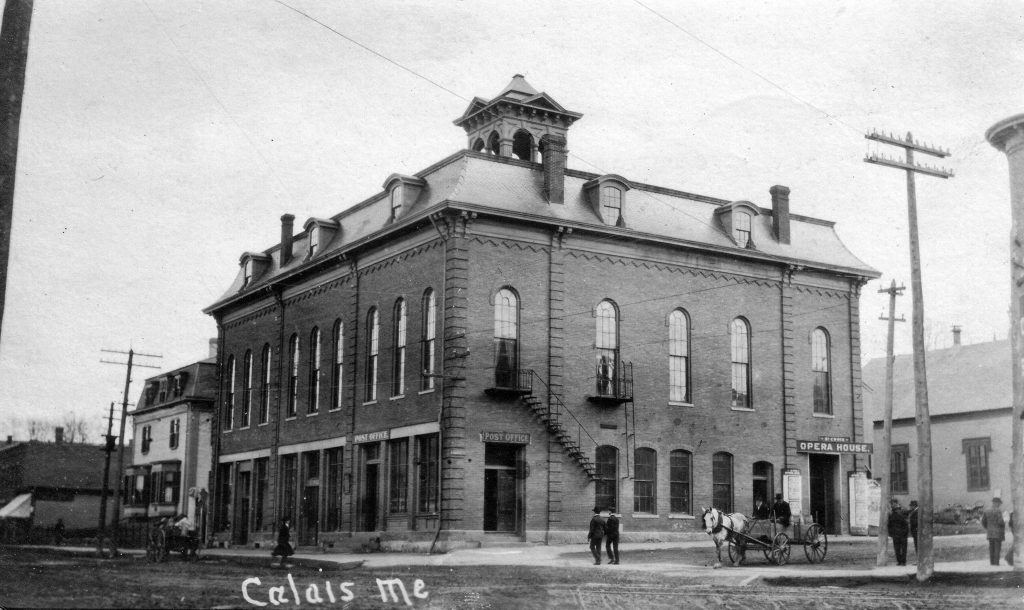
The Calais Opera House hosted many famous performers and acting troupes in that era . As the article refers to “members of the company”, it is very likely his acting troupe had performed a play at the Opera House. He would have had second thoughts about doing a return engagement in Calais. He and his wife’s loss on the Calais engagement was, in today’s dollars, $840,246.67 not including the “Jersey Lily”.
